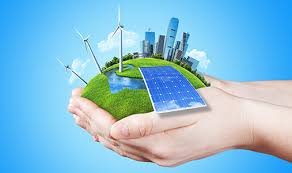Karnataka HC Strikes Down Green Energy Rules
In the recent Brindavan Hydropower Private Limited Case, 2024, the Karnataka High Court struck down the Electricity (Promoting Renewable Energy Through Green Energy Open Access) Rules, 2022 (GEOA Rules) and related Karnataka Regulatory Commission Regulations, 2022.
Key Facts Related to The Case
Petitioners’ Argument
Hydropower companies claimed the GEOA Rules violated the Karnataka Electricity Regulatory Commission’s (KERC) authority under Sections 42(2) and 181 of the Electricity Act, 2003.
Centre’s Defence
- The Centre argued that it had authority under:
- Entry 14 (Union List)
- Entry 38 (Concurrent List)
- Section 176(1) of the Electricity Act.
- It stated the rules were vital for meeting India’s international commitments, including COP26 pledges.
Court’s Decision:
- The Central Government cannot override the Electricity Act’s framework and the powers granted to independent State Regulatory Commissions.
- Section 176(2) cannot be misused as residual power to interfere in state regulatory matters.
Important Provisions of the Electricity Act, 2003
- Section 42(2): Grants State Commissions exclusive authority to regulate open access for electricity distribution.
- Section 181: Allows State Commissions to create rules aligned with the Act.
- Section 176(1): Enables the Centre to make rules for implementing the Act.
- Section 176(2): Focuses on framing rules for specific functions like those of the Central Electricity Authority.
GEOA Rules, 2022
- Objective: Promote renewable energy and ensure affordable, reliable, and sustainable energy through open access.
- Key Features:
- Promotes green energy, including waste-to-energy.
- Lowered open access threshold from 1 MW to 100 kW, enabling small consumers to purchase renewable energy.
- Consumers can demand green power from DISCOMs.
- Uniform Renewable Purchase Obligation (RPO) for all entities, including green hydrogen and ammonia.
- Incentives like reduced surcharges and green certificates for consumers using renewable energy.
Key Committees on Power Sector Reforms
- Deepak Parekh Committee (2008): Suggested financing measures for power projects.
- Ashok Chawla Committee (2011): Studied resource allocation for power generation.
- Kirit Parikh Committee (2022): Recommended pricing reforms for power-related fuels.
India’s Updated Climate Targets (COP26, 2021)
- Reach net-zero carbon emissions by 2070.
- Build 500 GW of energy capacity from non-fossil fuel sources by 2030.
- Get 50% of the country’s energy from renewable sources by 2030.
- Cut carbon emissions by 1 billion tonnes by 2030.
- Reduce the economy’s carbon intensity by 45% compared to 2005 levels by 2030.
Month: Current Affairs - January, 2025
Category: Legal & Constitution Current Affairs







